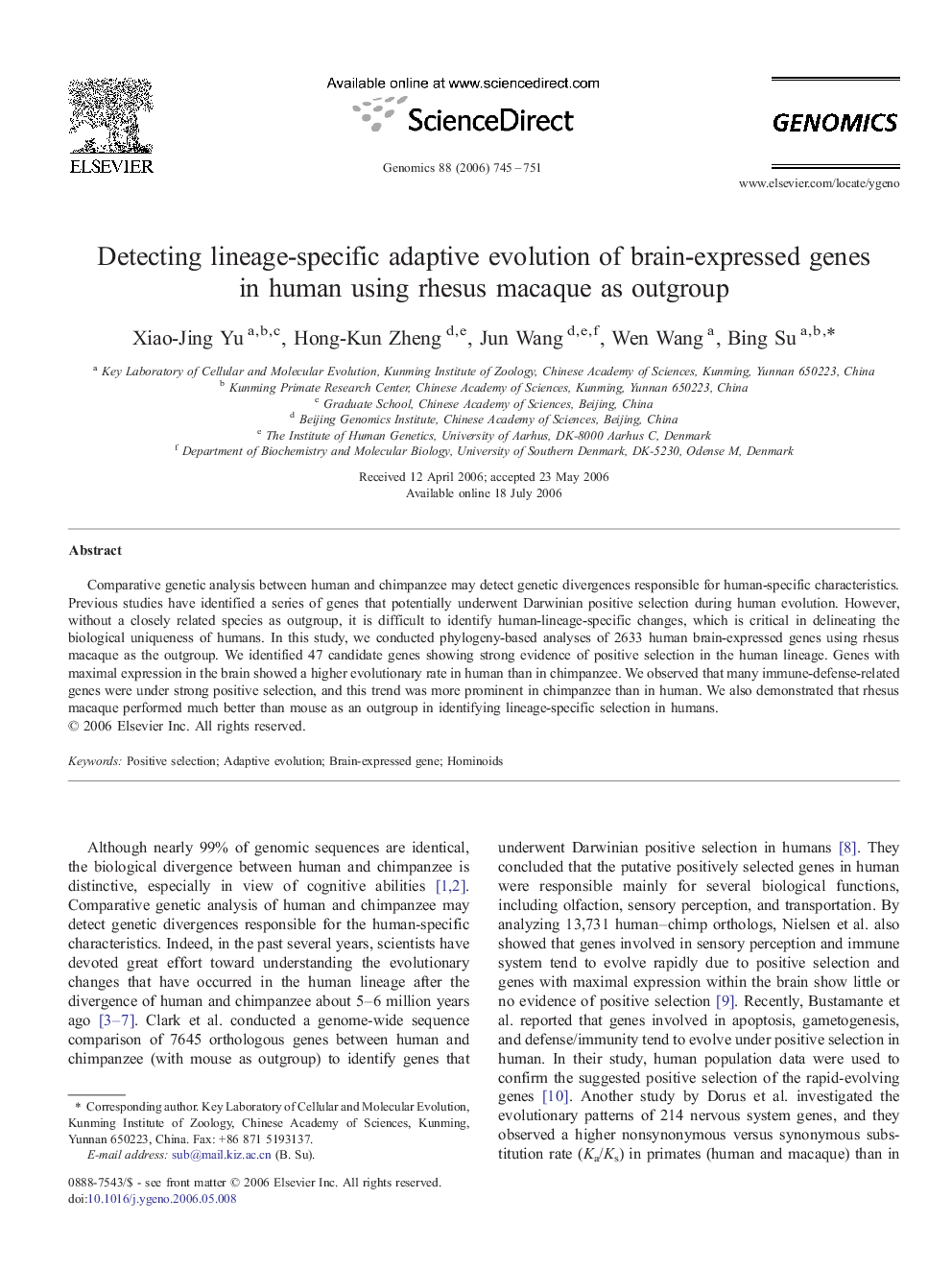| Article ID | Journal | Published Year | Pages | File Type |
|---|---|---|---|---|
| 5908043 | Genomics | 2006 | 7 Pages |
Abstract
Comparative genetic analysis between human and chimpanzee may detect genetic divergences responsible for human-specific characteristics. Previous studies have identified a series of genes that potentially underwent Darwinian positive selection during human evolution. However, without a closely related species as outgroup, it is difficult to identify human-lineage-specific changes, which is critical in delineating the biological uniqueness of humans. In this study, we conducted phylogeny-based analyses of 2633 human brain-expressed genes using rhesus macaque as the outgroup. We identified 47 candidate genes showing strong evidence of positive selection in the human lineage. Genes with maximal expression in the brain showed a higher evolutionary rate in human than in chimpanzee. We observed that many immune-defense-related genes were under strong positive selection, and this trend was more prominent in chimpanzee than in human. We also demonstrated that rhesus macaque performed much better than mouse as an outgroup in identifying lineage-specific selection in humans.
Related Topics
Life Sciences
Biochemistry, Genetics and Molecular Biology
Genetics
Authors
Xiao-Jing Yu, Hong-Kun Zheng, Jun Wang, Wen Wang, Bing Su,
